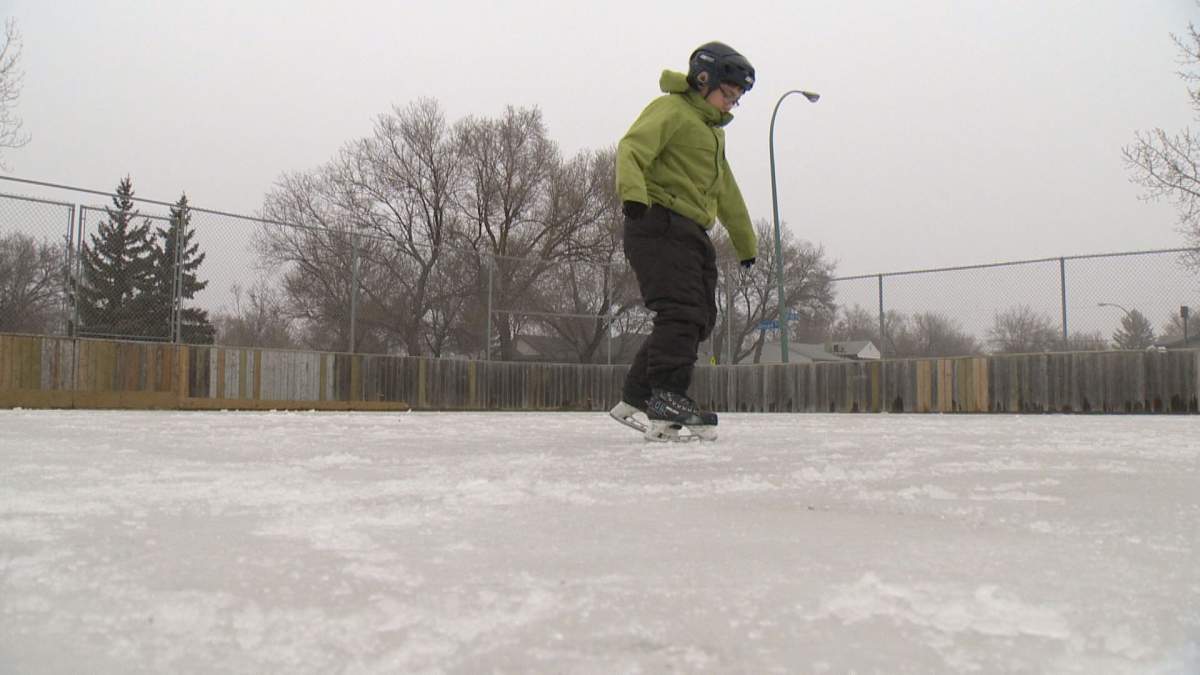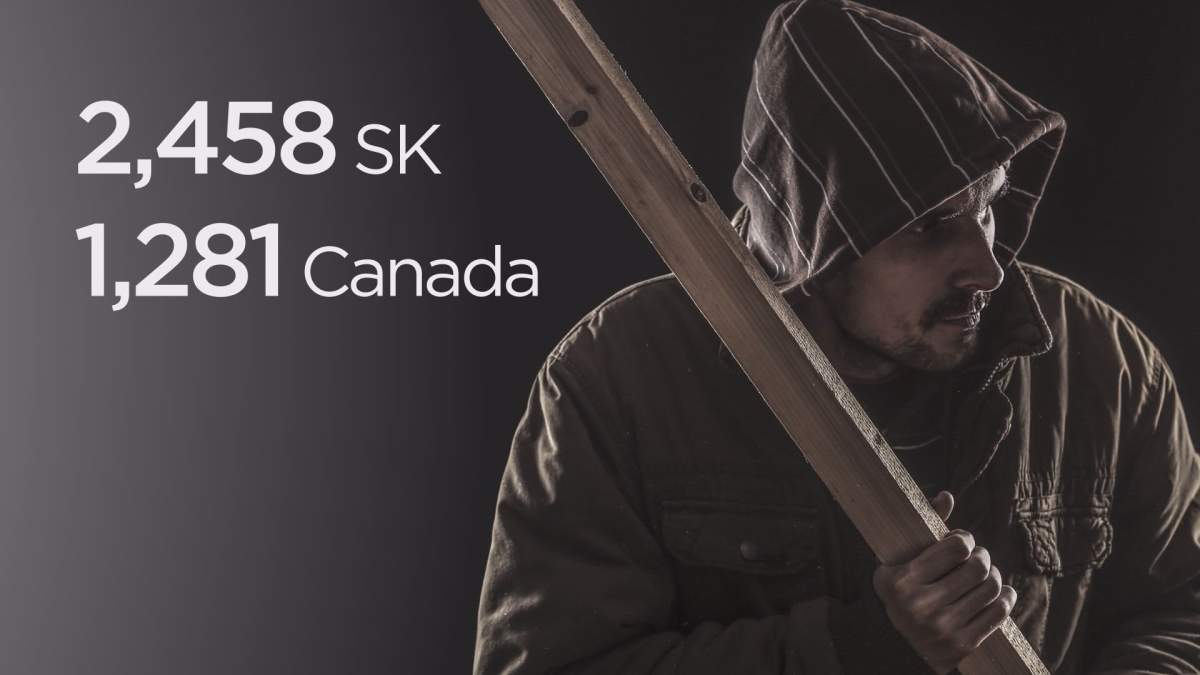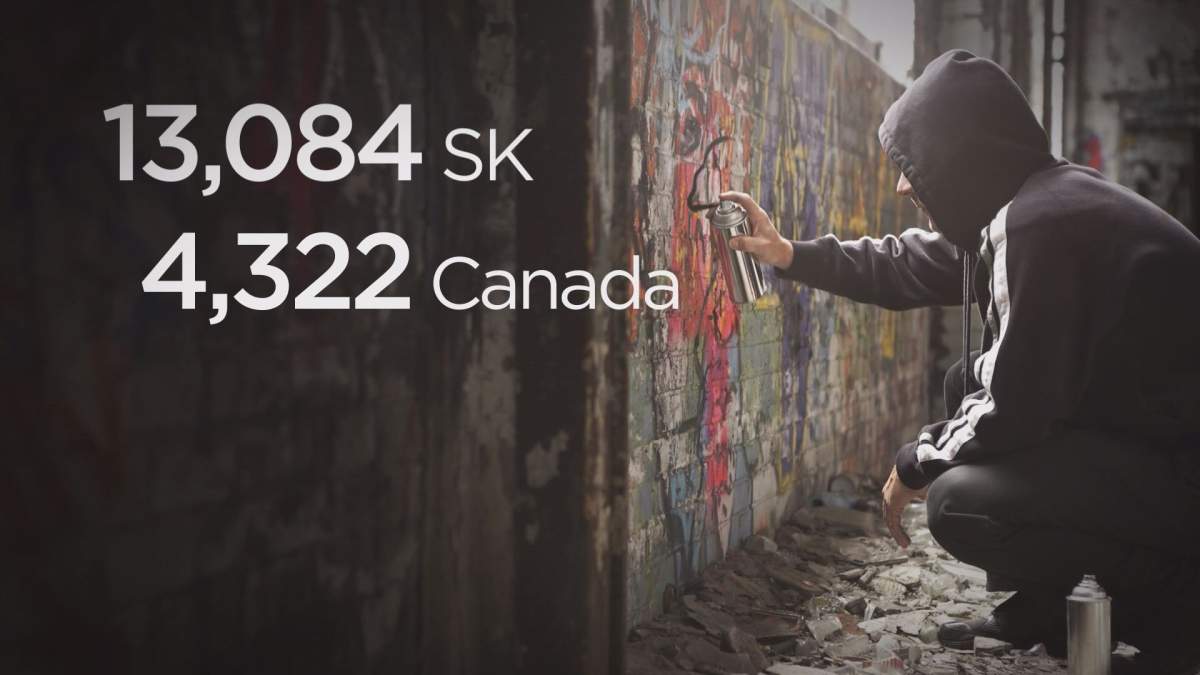Regina – Skating is Philip Breitenbach’s favourite activity right now. It’s all very new for the St. Luke’s grade four student.

“I like that it’s like a different version of walking,” he said as he slides by.
In Philip’s case, new is good. He needed to shake-up his regular routine.
“Sometimes I get upset, because sometimes I think I can do anything,” he said.
“Sometimes I think I can be the best in my class, and I thought I didn’t need to ask for help or use breaks, and that got me frustrated.”
“He can be violent when he gets frustrated. He can hit himself. He can hit other people, and just sort of has a meltdown,” Philip’s mom, Christine Breitenbach, said.
As a result, he was only going to school for about two hours a day before he would be sent home, or suspended.
“Was I worried about him? As a mom, yea. To have your kid not succeed in an aspect of their life like school was difficult to watch.”
Regina Catholic School Board officials called her in for a meeting.
“They said that sometimes kids with these behaviours can be at risk when they older for violent tendencies in teenage years and adult years, and so they would like to help us,” she recalls.

Get breaking National news
They suggested The Regina Intersectoral Partnership (TRiP) program. It’s a local initiative to help students who aren’t on a good path, change their course.
“Our role at TRiP is to get all the partners together so all the human services fields together and talk about the best approach for that family,” Lance Dudar, TRiP coordinator, said.
Once they get a referral for a child in need, they call the family. If the family wants help, they meet with the TRiP team to discuss how to re-engage that child. The solution is different for everyone.
“It’s not a cookie-cutter model. It’s not ‘this is what we think you should do’. It’s, ‘what’s going to work? What’s going to work for you?'” said Dudar.
TRiP hopes to curb Saskatchewan’s high youth crime rate.
Recent data from Statistics Canada shows youth crime has been on the decline across the country since 1991, but in Saskatchewan, number remain well above the national rate.
For every 100,000 people aged 12-17, over 2,458 were accused of a violent crime, that’s almost double the national rate.
In terms of overall crime, 13,084 Saskatchewan youth were accused of a non-traffic crime, more than triple the national figure.
TRiP hopes by curbing at-risk behaviour in children like Philip early, they’ll see lower youth crime rates down the road.
The first step for Philip was working with counsellors who have been teaching him how to better control his emotions, especially in school so he can stay all day.
It’s certainly working. He’s now a star student, and attends regularly.
“I learned that even smart people need to ask for breaks and need help,” Philip said.
TRiP also provided financial supports so his family can access memberships to the science centre, the YMCA, and local museums. They’ve connected him to a local skating club where he’s learning how to compete, and becoming more engaged in school and community activities.
As a result, his mom said he’s become more social.
“At first I was nervous,” said Philip. “I didn’t have much friends. I didn’t even really talk to any people I didn’t know. I started making friends because I started talking to people.”
“The early attachment to school has got a ton of benefits, and that disengagement from school has a ton of negative impacts,” said Dudar.
“That piece is big for us. The fact that Philip started out with us only going to school a couple hours a week, not attending, the consequences of that as the young person grows are pretty significant. Turning Philip around at this time is going to pay huge dividends down the road. The fact that he is now a fully participating student in his school, that’s incredibly important.”
Philip is just one example of 112 families who are current TRiP clients. Potentially, that’s 112 kids who have displayed troubling or violent behaviour who now have a chance for early change.
“We hope we can help those young people with the skills that will result in them responding differently to things when they occur, and not responding with violence,” said Dudar.
“I just think that kids like me can learn from trying new stuff, like I did when I first went skating,” said Philip.











Comments